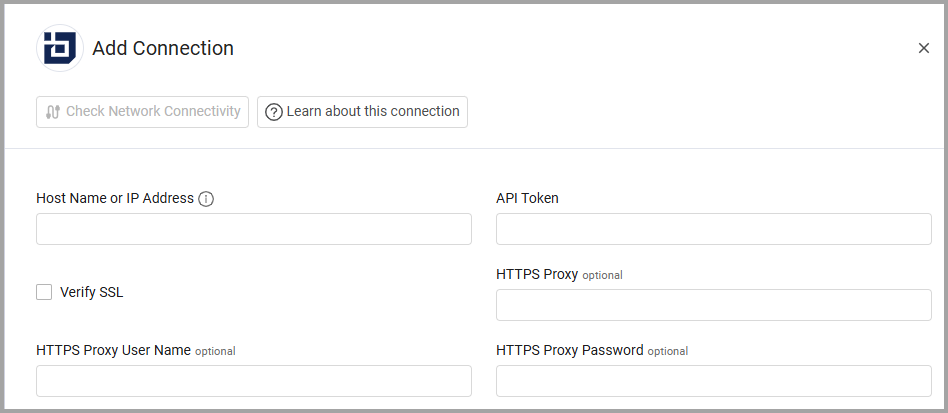EfficientIP SOLIDserver DDI
EfficientIP SOLIDserver DDI suite is designed to deliver virtual and hardware appliances for critical DNS-DHCP-IPAM services.
Use Cases the Adapter Solves (optional)
- Detecting Unmanaged Assets: Identify devices within DNS, DHCP, and IPAM records that are not currently managed by security agents or scanners.
- IP Address Management Visibility: Analyze and track IP address allocations and lease history to maintain an accurate inventory of network devices.
- Verifying Network Coverage: Verify that all active network segments and DNS resource records are accounted for in the broader asset management strategy.
Asset Types Fetched
Devices |
Networks
Before You Begin
Ports
- TCP port 443
Authentication Method
APIs
Axonius uses the SOLIDserverRest for Python API.
Supported From Version
Supported from Axonius version 4.4
Connecting the Adapter in Axonius
Navigate to the Adapters page, search for EfficientIP SOLIDserver DDI, and click on the adapter tile.
Click Add Connection.
To connect the adapter in Axonius, provide the following parameters:
Required Parameters
- Host Name or IP Address - The hostname or IP address of the EfficientIP SOLIDServer DDI server.
- User Name and Password - The credentials for a user account that has the Required Permissions to fetch assets.
- Connection Label - A label to help you distinguish between multiple connections for the same adapter. See Connection label.

Optional Parameters
- Verify SSL - Select whether to verify the SSL certificate of the server against the CA database inside of Axonius. For more details, see SSL Trust & CA Settings.
- HTTPS Proxy - Connect the adapter to a proxy instead of directly connecting it to the domain.
- HTTPS Proxy User Name - The user name to use when connecting to the value supplied in Host Name or IP Address via the value supplied in HTTPS Proxy.
- HTTPS Proxy Password - The password to use when connecting to the server using the HTTPS Proxy.
-
Select Gateway – Select the Axonius Gateway to use when connecting adapters whose sources are only accessible by an internal network and not from the primary Axonius instance, which may be an Axonius-hosted (SaaS) instance or Customer-hosted (on-premises / private cloud). To use this option, you need to set up an Axonius Gateway.
To learn more about common adapter connection parameters and buttons, see Adding a New Adapter Connection.
Advanced Settings
Note:
Advanced settings can either apply to all connections for this adapter, or to a specific connection. Refer to Advanced Configuration for Adapters.
To learn more about Adapter Configuration tab advanced settings, see Adapter Advanced Settings.
-
Treat first-three-segments of device name/FQDN as hostname - Select whether to treat the first three dash-separated-segments of a device's name as a hostname. When you select this option, devices with three or more dash-separated segments in their name will have their hostname truncated to the first three segments, for example,
- one-two-thr33-four--.mydomain.com -> hostname = one-two-thr33
- one-two.mydomain.com -> hostname = one-two.mydomain.com
-
Fetch DNS servers as devices - Select this option to fetch DNS servers and their Zones as devices.
-
Fetch Resource Records (RRs) as devices - Select this option to fetch DNS Resource Records as devices.
-
Fetch DHCP scopes, scope options, ranges, leases, and statics as devices - Select which DHCP elements to fetch as devices.
-
Page size per request - Enter a value to set the page set of every request of the adapter to the set number (default is 1000).
Updated 23 days ago
